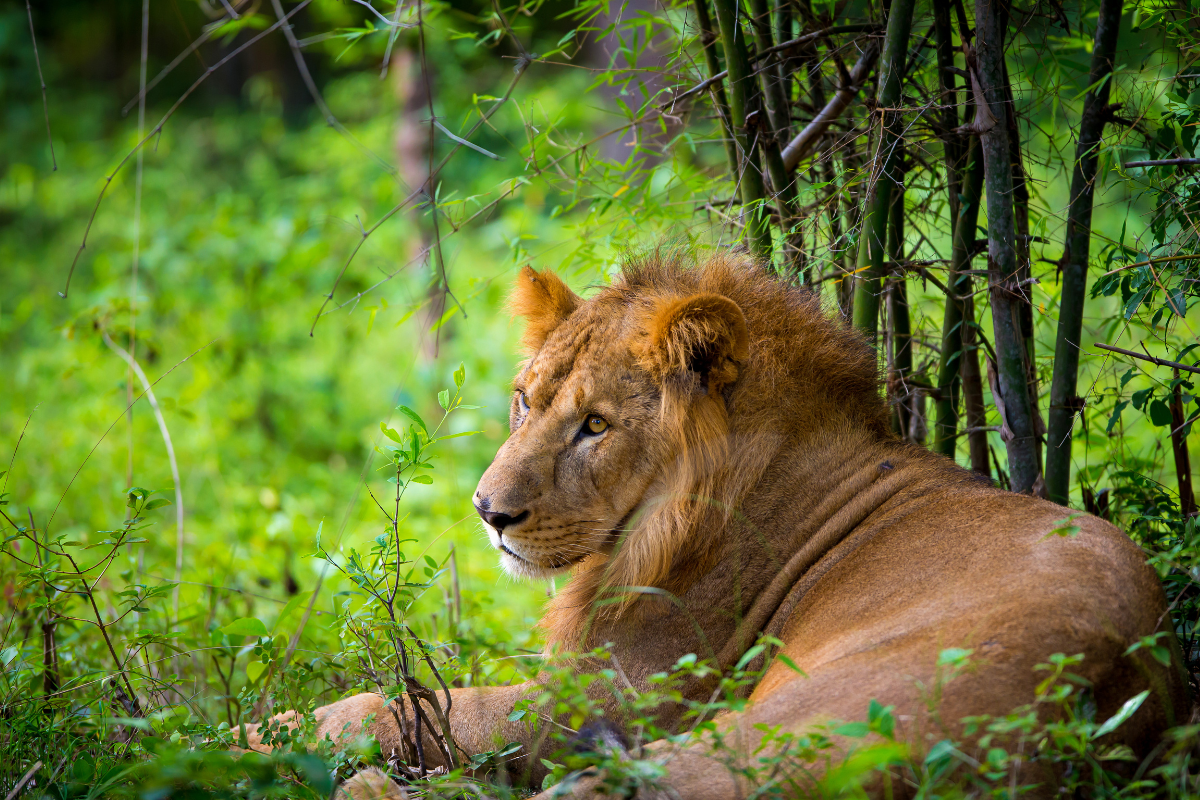A recent study on Asiatic lions, whose entire population of 674 resides in Gujarat, revealed unique coexistence patterns between the big cats and humans. Released Thursday, the research highlights how mutual adaptation, economic incentives, and legal protections enabled this rare balance in a densely populated region.
Lions’ geographic range expanded by 36% between 2015 and 2020, with their population growing by 6% annually. The study analyzed over 14,000 livestock depredations, 11,000 compensation claims, and surveys across 277 villages to uncover the coexistence mechanisms.
The findings emphasized that economic benefits from regulated and unregulated wildlife tourism foster tolerance for lions. Regulated tourism occurs in protected areas like Gir National Park, while unregulated tourism on private lands involves illegal practices like offering livestock as bait.
Cultural norms and practices, like abandoning old cattle, provide a steady food supply for lions. This dual dynamic—greater human acceptance and available food sources—has allowed lions to thrive outside Gir’s protected zones.
Despite the success story, coexistence remains fragile. The study flagged concerns over rising human-lion conflicts, such as livestock losses and occasional human attacks. Most livestock deaths (91%) occurred outside protected areas, with cattle being the most targeted.
To sustain coexistence, researchers recommended revising the livestock compensation scheme to align with market rates and exploring livestock insurance. Advanced monitoring, including radio collars with geofences, was suggested to mitigate risks in conflict-prone areas.
Gujarat is the sole habitat of Asiatic lions, but conservationists have long called for their translocation to Madhya Pradesh to ensure genetic diversity and safeguard against diseases. Despite Supreme Court orders, this relocation hasn’t happened.
The survey found that communities facing higher conflicts with lions were surprisingly more tolerant, driven by economic and cultural factors. People from high-conflict areas often perceive lions as noble and take pride in their presence, offsetting losses through tourism income.
Lead researcher Y.V. Jhala and his team underscored the need for participatory conservation measures. They suggested institutionalizing community-based ecotourism to ensure mutual benefits for local communities and long-term lion survival.
Support us to keep independent environmental journalism alive in India.
Keep Reading
Watch: Kashmir experiences first snowfall of season after dry spell
Amarnath Yatra: Tackling rising death toll from extreme weather events
Tourists arrival in Kashmir break records, a need to regulate it?
From tourist paradise to waste wasteland: Sindh River Cry for help
Follow Ground Report on X, Instagram and Facebook for environmental and underreported stories from the margins. Give us feedback on our email id greport2018@gmail.com.
Don’t forget to Subscribe to our weekly newsletter, Join our community on WhatsApp, and Follow our YouTube Channel for video stories.






